Public service a commitment in this age of uncertainty
By James Yau
Speakers at the United Nations Public Service Forum 2025 challenged public servants to be creative, collaborative and localised when innovating in the government.
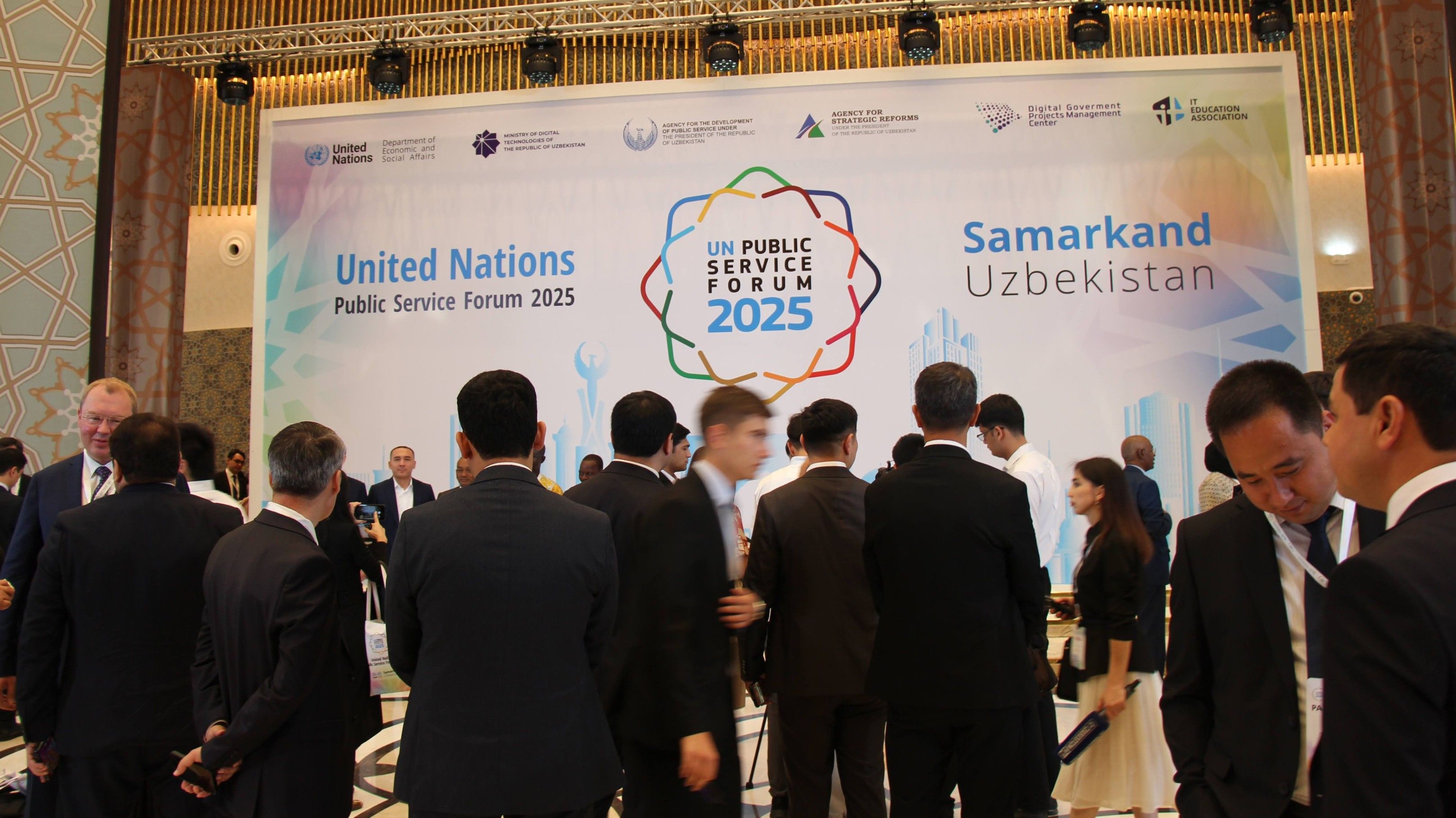
The themes of commitment and connection were reinforced throughout the three days of the UN Public Service Forum 2025. Image: UN Department of Economic and Social Affairs
Creative Bureaucracy Festival Advisor, Robyn Bennett, highlighted the importance of collaboration and creativity in public service at the closing session of the United Nations Public Service Forum (UNPSF) 2025, held in Samarkand, Uzbekistan, on June 25.
Civil servants have to work within the reality of short political cycles, scarce resources, and unexpected crises that don’t wait for the government’s usual five-year plans, she noted.
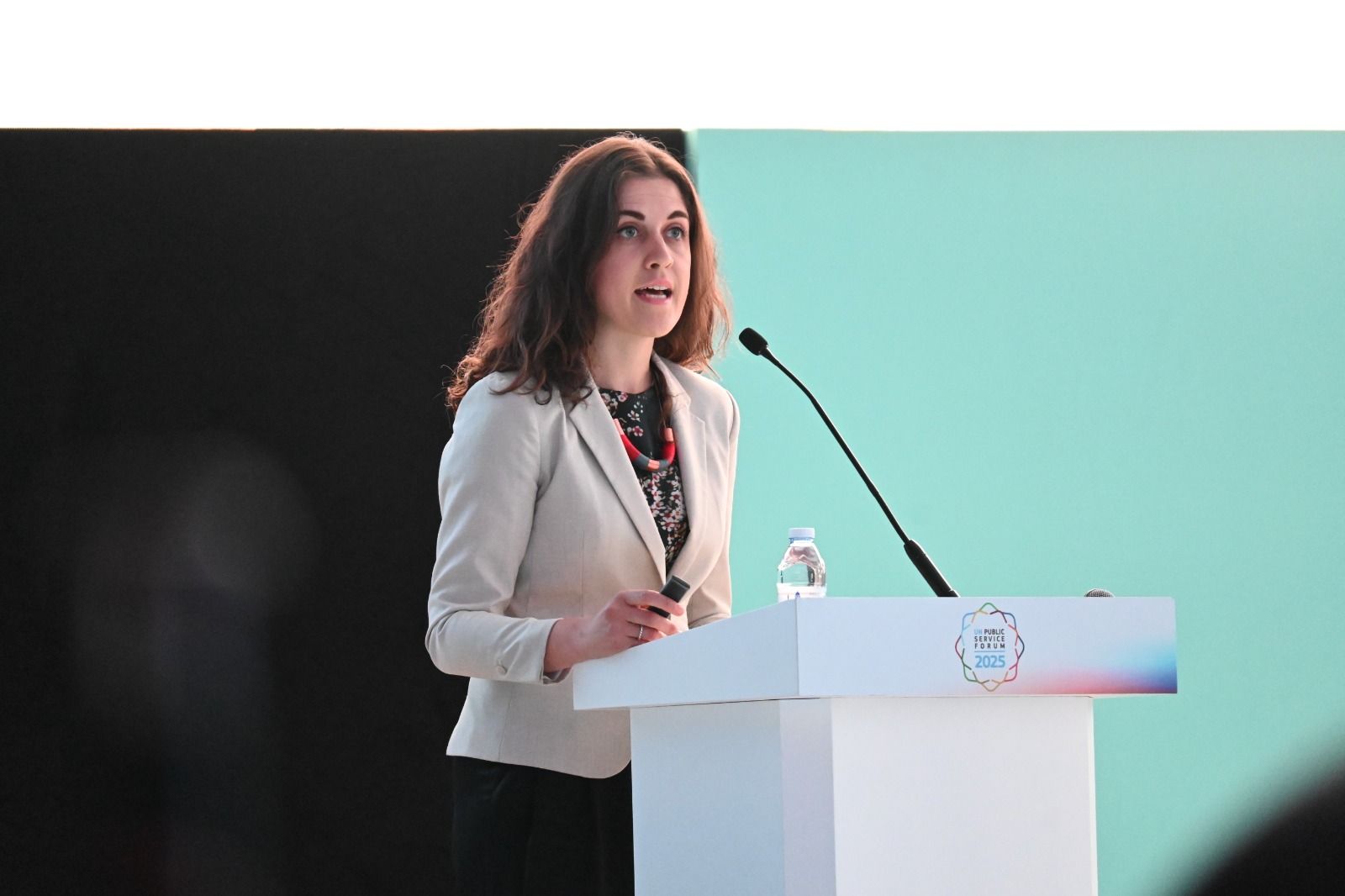
“But here’s what I’ve learned from public servants around the world: The gap between promise and delivery isn’t where hope dies. It’s where creativity is born,” she said.
Bennett also underscored the necessity of both cross-regional and inter-generational cooperation to tackle problems too vast for any single entity to solve, such as political upheavals and artificial intelligence (AI).
“Your answers reminded me that public service isn't just a job - it's a commitment. A choice to stay in the arena when others walk away. To tend the systems that make life possible for millions of people you'll never meet,” she added.
Over two ministerial roundtables, two plenaries, eight workshops, coffee breaks and meals of plov (Uzbekistan’s national dish), the forum convened over 800 delegates from the international public service community in the ancient city of Samarkand.
Speaking to GovInsider, University of Sydney’s lecturer in public policy and administration, Assel Mussagulova, highlighted that ambitious government strategies must be tempered with the practical realities of sustaining motivation and smoothly executing digital transformation.
Travelling 36 hours door-to-door from Australia to Uzbekistan, she made the trip to share about her research on public service motivation and the role of empathy at the forum.
The forum itself served as a crucial platform for global public agencies to review and renew their collective targets towards the Sustainable Development Goals (SDGs) 2030.
To subscribe to the GovInsider bulletin, click here.
The state of AI in the government
A common thread across the discussions was the promise of AI in revolutionising how governments serve citizens.
Despite its immense potential, governments often struggled to bridge the gap between what was possible and the stubborn realities of putting plans into action.
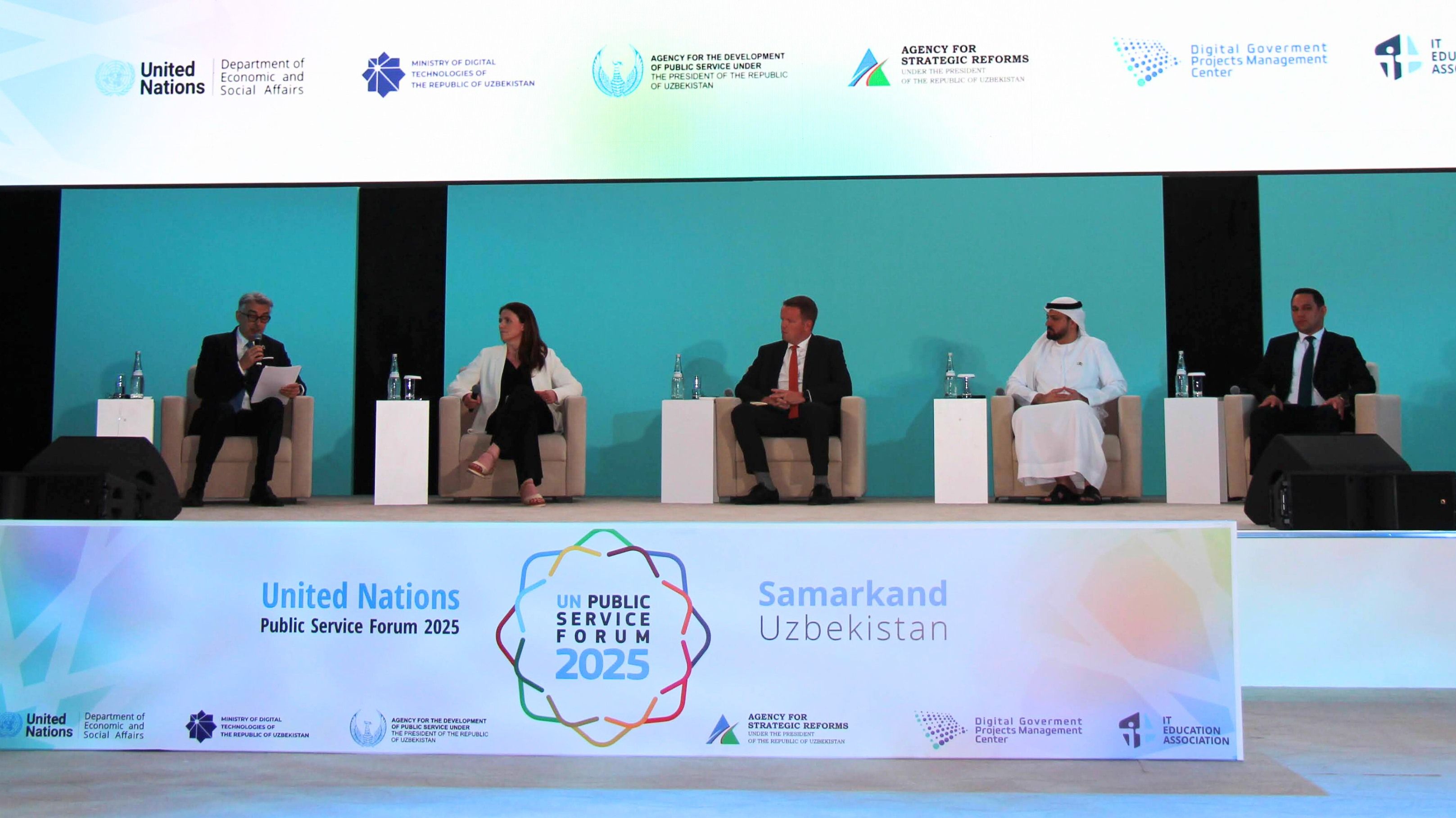
As a pioneer in public sector AI adoption, United Arab Emirates (UAE)’s Chief of Government Services, Mohamed bin Taliah, highlighted the benefits of AI in his country, noting its historic appointment of the world’s first ever AI Minister in 2017.
“I believe it is focusing on small iterations of models that have higher impact. Having tangible results and impact at early stages is crucial to ensure that we have the right momentum when it comes to executing and employing AI government,” said Chief Mohamed.
Despite some successful AI implementations, the Organisation for Economic Co-operation and Development (OECD)’s Deputy Director in the Public Governance Directorate, Gillian Dorner, highlighted the fragmented nature of AI adoption and persistent challenges like data access and legal frameworks.
“Many governments describe as having what we call the case of ‘pilotitis’, where many of the cases of AI adoption are still pilot phase, and governments are finding it very difficult to then scale up,” said Dorner.
The OECD has been researching on AI in government since 2013, Dorner added, tracking over 4,000 AI cases in governments across the EU, US, and Latin America.
The uneven deployment of AI across countries and functions, increasing use of AI for analytics purpose, and the limited adoption of generative AI (GenAI) were three key trends Dorner highlighted from an upcoming OCED report on governing with AI based on research from 200 real world use cases.
Collaborative and localised public sector innovation
Another central theme explored was the need for public sector innovation to be purpose-driven and people-centred – firmly rooted in trust, collaboration, and flexible systems.
The plenary session titled Innovation Labs in Action spotlighted the origins, successes, and challenges of innovations labs in Brazil, South Africa, and Columbia.
South Africa’s Clinical Service Improvement and Innovation Specialist, Dr Almero Oosthuizen, stressed the importance of selecting the right tools for the job.
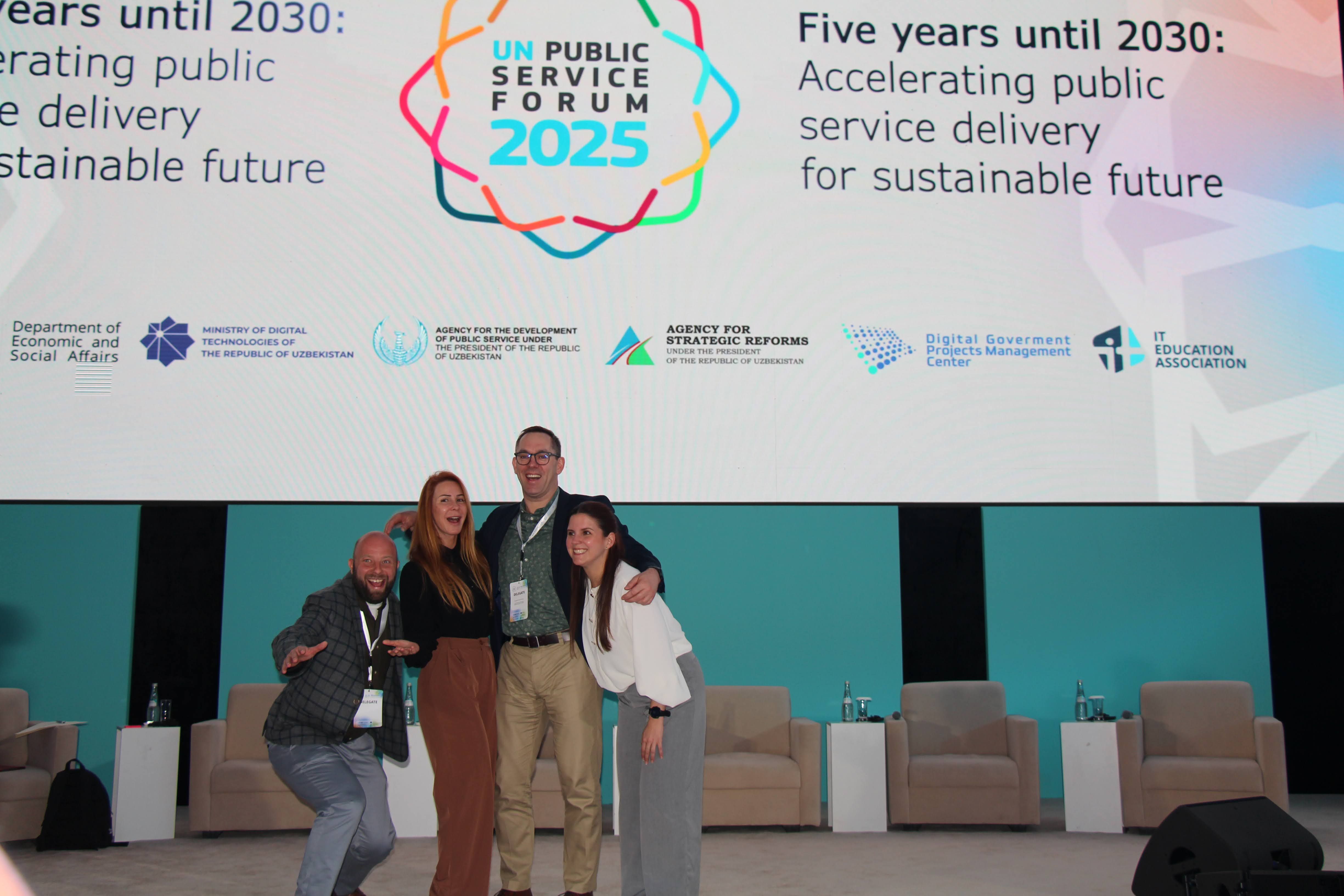
“A dog isn't good or bad, but a well-trained attack dog is a bad family pet, and a good family pet is a badly trained for attack.
“I think [innovation] labs that are sustainable and successful are the ones that does the fundamental principles and job of building value by doing something new or different.”
The specialist for the Western Cape Department of Health and Wellness advised that innovators should “embrace universal principles then customise it to their local context rather than working against it”.
According to the Deputy Secretary for Institutional Strengthening, the Mayor’s Office of Bogotá, Alejandra Rodas, it was important to empower public officers to innovate by enhancing their skills and improving interagency connections.
“It is important to understand that this type of approach works in complex problems. If you have a fixed solution, something that have been working and tested in a really specific way, it's not our space to innovate,” she said.
Top e-government progress
Twelve countries were also recognised for their significant progress in digital government, referencing UN’s E-Government Development Index (EDGI).
The countries were Albania, Armenia, Columbia, Ecuador, Jordan, Mexico, Mongolia, the Philippines, South Africa, Türkiye, Ukraine, and Uzbekistan.
The countries shortlisted for the recognition were those that did not belong to the high-income countries group, had an EDGI value above the global average of 0.64, and had a very high Online Service Index (OSI) of above 0.75.
In addition, the countries had to meet at least one of three criteria: Moved up from high to very high EGDI group, moved up more than 15 positions in the EGDI ranking in 2024, or moved up from high to very high Online Service Index (OSI) group with an increase of OSI in more than 15 per cent compared to 2022.
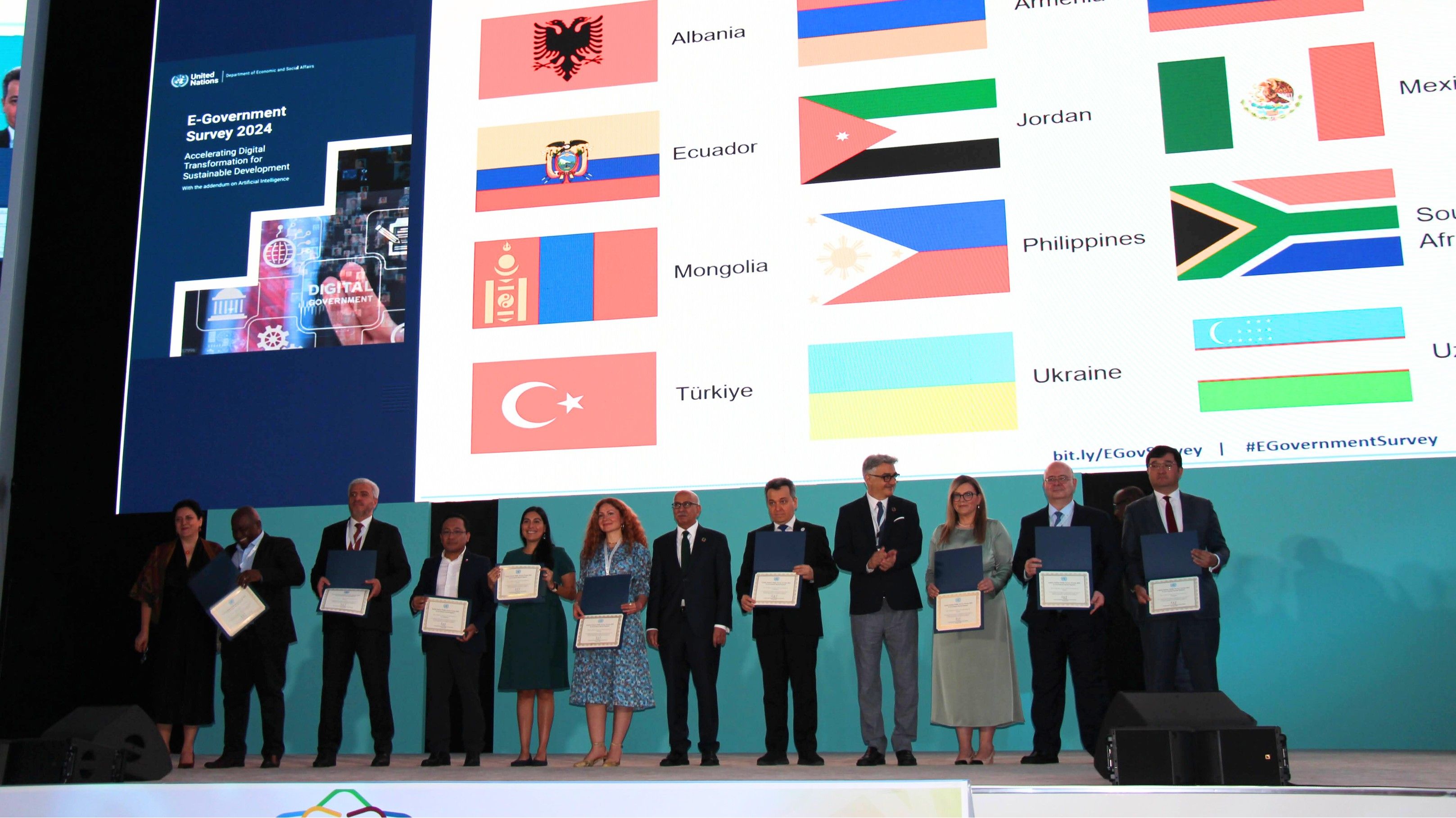
The Central Asia Digital Governance Forum (CADGov) was also officially launched during the forum.
CADGov is a joint initiative between The Ministry of Digital Technologies of the Republic of Uzbekistan and the United Nations University-EGOV.
It would become a space for government officials from across Central Asia to share knowledge, develop digital governance strategies, improve regional cooperation and design citizen-centred services.
The forum will host webinars, prepare regional progress reports, and develop joint initiatives.
Next forum to be held in Tbilisi, Georgia
The next edition of the UNPSF will take place in Tbilisi, Georgia and Georgia’s Minister for Justice, Paata Salia, extended a warm invitation to the participants to the event, to be held in 2026.
“We will offer you a unique platform for thought leaders, practitioners, and policymakers from around the globe to shape the future of the public service together,” said the Minister.
Concluding the UNPSF 2025 in Samarkand, Uzbekistan’s Minister of Digital Technologies reaffirmed that the role and impact of public service goes beyond hardware but in qualities that “cannot be encoded but can be strengthened”.
He said: “Let the Samarkand Declaration become not just a document for us but a plan of action. Let this forum because the starting point for new decisions, partnerships, and initiatives.”